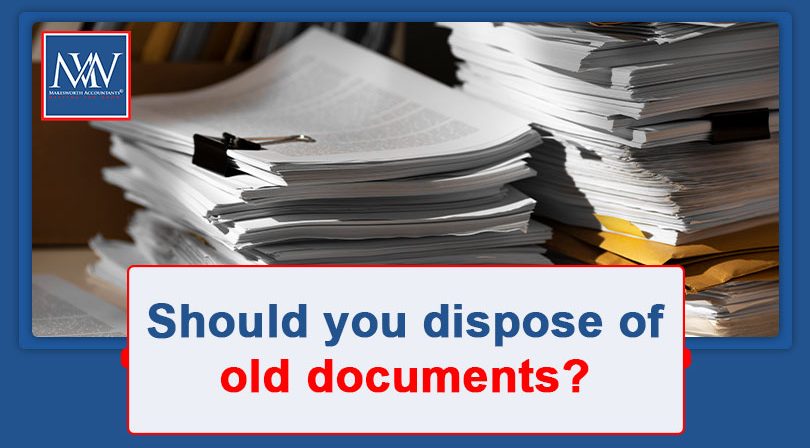
Should you dispose of old documents?
Over the past few years, tax enquiries aimed at identifying and correcting errors or deliberate under-reporting in tax returns have increased. HMRC generates substantial revenue from all compliance activities and although the exact proportion relating to tax enquiries is not always separately reported, the latest figures show that for 2023-24 the amount secured from all tax compliance activities was in the region of £41.8 billion. Read this article to find out more.
Receiving an enquiry letter
The first indication that a taxpayer’s return is under enquiry is via an official notification letter. The envelope will be A4 size, containing several pages informing the taxpayer that the check has started, notifying them of the process and their legal rights and obligations. HMRC is not obliged to reveal why the taxpayer has been chosen for enquiry and if no reason is stated, a phone call may elicit an indication. Enquiries can be costly for both the taxpayer and HMRC and are usually the result of HMRC receiving information from third parties that has not been declared on the taxpayer’s tax return. Years of unprofitability may also be investigated, as may large, unexplained changes in income and figures returned that may be inconsistent with comparable businesses.
Information requested
The letter will state what documents are needed (although HMRC often requests documents which may not be legally required). The self-employed and taxpayers with capital gains are required to retain documents for five years from the 31 January submission deadline; six years from the end of the accounting period. However, it is advisable to retain them for at least another year. Note that HMRC has four years from the end of the tax year to issue a discovery assessment and can go back 20 years if the taxpayer is found to be dishonest.
If the taxpayer is in business, they are expected to retain various documents including receipts, invoices and employment contracts (to verify salary and employment benefits). Property documents such as rental agreements, mortgage statements and ownership details for properties are expected to support income declarations and capital gains.
With the increased requirement for digital record-keeping under Making Tax Digital (MTD), HMRC now accepts electronic records instead of paper documents. These records must be kept digitally, ensuring traceability, linked to quarterly tax submissions and must be authentic, complete and legible. There are now apps linked to mobile phones that stream automatically into cloud storage and input into accounting software. HMRC is expecting businesses to take advantage of such facilities under MTD.
Bank statements are the most important documents to retain but be aware that banks retain statements online for the legal timeframe only.
VAT-registered businesses are required to retain a valid VAT invoice. However, there is no requirement to keep receipts relating to specific types of supplies up to a value of £25 (including VAT), such as car parking charges. For supplies not exceeding £250, the supplier may issue a less detailed invoice.
Cash payments
Under an enquiry, HMRC invariably disallows claims for cash payments unless proper invoices and receipts can be presented. If an entry in the business records are not enough to allay HMRC’s doubts, duplicate invoices could be requested should the supplier be contactable and willing to supply. HMRC has been known to require a signed letter from the supplier businesses stating the amount received (with their name and address/NI number, etc).
Third-party information
HMRC may request information from third parties, such as customers, suppliers or financial institutions, to cross-check the taxpayer’s information.
Practical point
The taxpayer is expected to show that identifiable sums have been spent on deductible expenses. HMRC has won tax cases where a deduction has been disallowed because inadequate or no evidence was presented.
Partner note:
McLeish v CIR (38TC1)
HMRC Enquiry Manual EM 3220
HMRC Compliance Handbook CH14000
VAT Notice 700/22 (refers to VAT records; however, requirements will align under MTD for Income Tax)
For more information, Book a Free Consultation
Need Accountancy Support?
For information on bespoke training, or if you have any other questions for Makesworth Accountant, please fill in your details below
















 151
151